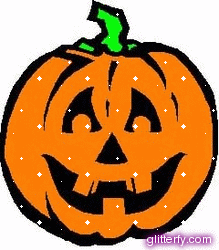Dear
families,
November is
here. So far we have completed Unit 0 and Unit 1 of our books and we have
worked on Halloween. We are learning to use folders and we have taken a test on
Unit 1. The results are very satisfactory.
After a
month and a half of classes there are some issues we should be aware of:
1. As Cicle Superior students we should
become more and more independent in our learning experience. We should depend
less on adults, we should work with more autonomy and less guidance. We are
like birds learning to fly!
2. One area we need to strengthen is “writing”.
This is our weakest point, so we have come to some agreements on how our work
is marked so that we can improve this skill. This is the most basic of our
Basic Competences: Learning to learn. We have to take an active role in our
learning process.
3. We should speak English more,
because we can. It is easier to resort to Catalan to speak to our teacher, but
it is a lot more useful to speak English as often as possible. This is why we
have made a list of useful sentences to use in class to which we will add more
when we think of new things to say!
So,
congratulations everybody and let’s keep improving our English!!
Benvolgudes
famílies,
Ha
arribat el novembre. Fins ara hem completat les unitats 0 i 1 dels llibres i
hem treballat Halloween. Estem aprenent a fer servir els dossiers i hem fet l’examen
de la unitat 1. Els resultats són molt satisfactoris.
Després
d’un mes i mig de classes hi ha algunes qüestions que requereixen la nostra
atenció:
1. Com a estudiants de Cicle
Superior hauríem de ser cada cop més independents en la nostra tasca d’aprenentatge.
Hauríem de dependre menys dels adults i hauríem de treballar amb més autonomia
i menys guiatge. Som com ocells que aprenen a volar!
2. Una àrea que cal reforçar és l’escriptura.
Aquest és el nostre punt dèbil, de manera que hem arribat a uns acords sobre
com es corregirà la nostra feina per poder millorar aquesta habilitat. Aquesta
és la més bàsica de les nostres Competències Bàsiques: aprendre a aprendre. Hem
d’adoptar un paper actiu en el nostre procés d’aprenentatge.
3. Hauríem de parlar més en
anglès, perquè en som capaços. És més fàcil recórrer al català per parlar amb
la mestra, però és molt més útil parlar anglès amb la màxima freqüència
possible. Per això hem fet una llista de frases útils per utilitzar a la
classe, i l’anirem ampliant a mesura que pensem en frases noves.
Així
doncs, l’enhorabona a tothom i continuem millorant el nostre anglès!!







